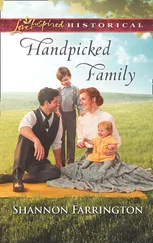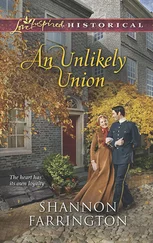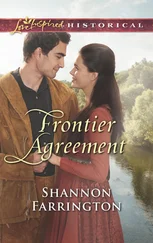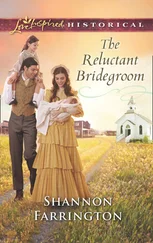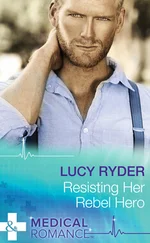“We have much to attend to today,” he said, trying to keep the political discussion limited. “Please open your books to chapter four.”
Sam tried to continue with his lesson plans but his heart was heavy and his students were distracted. The combination of which did not make for a very engaging time of study. He ended up dismissing the young men early.
“Look after your families,” he told them.
The students seemed grateful to go. They rose quickly from their seats and hurried for the door. Their teacher, wishing to join them, moved to pack his books in his satchel. But where could he go? The Stantons, Julia’s family, were the closest thing he still had to family. But her words the previous night had made it quite clear that she would not welcome his company any longer. Her words were still ringing in his ears.
You are a coward. I will not marry you.
A knock on the door frame caused him to look up. There in the opening stood Dr. Charles Carter, the dean of students.
“And how are you today, Mr. Ward?” he said evenly as though it were any other spring day.
Sam had only known the man for a short period of time but he had come to respect him. Dr. Carter was a by-the-book disciplinarian but impartial and evenhanded, as well.
“Well, sir. And you?”
Dr. Carter smiled a tempered smile. “Oh, well enough.” He stepped toward Sam’s desk. “How was your class? The attendance in particular, if I may ask.”
Sam sighed and gave the man his report.
Dr. Carter nodded silently, as though he had suspected such. “I am afraid to say that this is the case in many classrooms this morning,” he said. His eyes swept the empty room then turned back. “Do not be discouraged, young man. The hand of Providence still guides.”
Sam appreciated the remark but did not have time to express so.
The dean then asked, “Have you a moment?”
“I do, sir.”
“Then would you walk with me?”
“It would be a pleasure, sir. I was headed outside myself.” Sam quickly packed his satchel and closed his classroom.
“These old rooms get so musty in the springtime,” Dr. Carter remarked. “I much prefer the fresh air.”
Sam followed the man to the end of the hall. They descended the large, walnut staircase, crossed the main foyer and stepped out onto the tree-lined campus before Dr. Carter spoke again.
“I couldn’t help but notice the small volume on your desk just now. Tell me, Mr. Ward, if you will be so kind, do you find Frederick Douglass’s words captivating?”
Heat crept up Sam’s neck. His tie and collar seemed a little too tight. He hadn’t even been aware that an autobiography of the former Maryland slave was lying on his desk. He must have placed it in his satchel with his other school books that morning.
He had bought the book in Philadelphia during his time at the State Street Teacher’s College. It was there he had first been exposed to the true realities of slavery. The more he learned, the more his conviction had grown that he could not support an institution that allowed one man to own another. It was a “state right” he could not condone for anyone’s sake. Not even Julia’s. Sam wondered where Dr. Carter’s inquiry was leading but he answered truthfully.
“I do not find them so much captivating, sir, as I do haunting.”
Dr. Carter nodded, though his face gave little indication to what he thought of the admission. “Why is that?” he simply asked.
Sam wished now that he hadn’t agreed to this walk. Slavery was a dividing issue. The last thing he wanted was to cause controversy between him and one of his colleagues. But he could not deny the certainty that he felt in his heart. He had no wish to offend, but he wouldn’t deny his beliefs. He answered the question carefully.
“We are all created in the image of God,” he said. “We should treat each other as God treats us.”
Dr. Carter stopped beneath one of the maple trees. He turned to Sam and smiled.
“I, too, share your thoughts,” he said.
“You do?”
“Yes. Have you ever met Mr. Douglass?”
“I have. A few months ago.”
“You were educated in Philadelphia, yes?”
“That is correct, sir.”
They started walking once more, choosing the stone path that led to the library.
“Fine work they are doing in Philadelphia,” Dr. Carter said. “Fine work, indeed.”
Sam wasn’t certain if he was referring to education or something else. He sensed it was the latter.
“I met Mr. Douglass once, myself,” Dr. Carter said. “In Boston.” He glanced at Sam. “There is fine work going on in Boston, as well.”
Sam did not reveal that he had once been there, as well; but by now he was beginning to suspect that Frederick Douglass and the fine work up north were related. Coupled with Dr. Carter’s first question, he reckoned that the Dean of Students had sided with the abolitionist cause. He seemed most curious to know what Sam’s position was.
“It is fine work,” Sam said. “Something I think that there should be more of.”
Dr. Carter’s eyes practically sparkled with excitement. From his vest pocket he produced a small scrap of paper. He handed it to Sam. “Then perhaps you would be interested in meeting some of my friends.”
Sam studied the note. It was an address in the Fell’s Point area. “Are your friends engaged in fine work?” he asked, borrowing the phrase.
“They are and they are always looking for God-fearing young men such as you to be part of such.”
He was cautiously intrigued. He had met a few abolitionists in Philadelphia. Most of them were kindhearted, wonderful people. A few, however, had such wild, vengeful looks in their eyes that frankly, they scared him. Sam wanted no part of a group like that. He believed judgment should be reserved for God alone.
A group of students exited the library. They walked toward Dr. Carter and Sam.
Dr. Carter’s countenance changed, a firm disciplinary look replacing the smiling excitement his face had just shown.
“Four o’clock, next Friday,” he said matter-of-factly. Then he opened the door to the library. Sam watched the white-haired gentleman walk into the building. Then he slipped the scrap of paper the man had given him into his own vest pocket.
Dr. Carter had left him with many questions. Abolitionists were a varying lot, and Sam wasn’t exactly certain what he might be getting into. He would appreciate his future father-in-law’s counsel. But given what had taken place with Julia, he wondered if Dr. Stanton would receive him. Does he know about our broken engagement? Will he side with Julia? He decided to take the chance. After all, he was concerned for their safety.
Heeding his own advice to look after one’s family, he hurried to visit the Stantons.
The streets of Mount Vernon were nearly deserted that afternoon. Barricades had filled the streets; but, as of today, the citywide state of “armed neutrality” had given way to at least the appearance of submission. Maryland state flags and the Palmetto flag, the symbol of South Carolina and secession, had been removed. The armed men that had been patrolling the streets for the last month were nowhere to be seen. The Federal guns pointing at Monument Square had discouraged outside activity.
Sam was eager to be indoors as well. To his relief, Dr. Stanton greeted him warmly when he arrived. He invited Sam to join him in the study. The man had surrounded himself with his medical journals.
“I came to see how everyone was,” Sam told him, “and to see if you were in need of any assistance.” And, if I may, get your opinion about something, he thought.
Dr. Stanton nodded. “I thank you. My wife has spent the entire day in bed.”
Читать дальше






